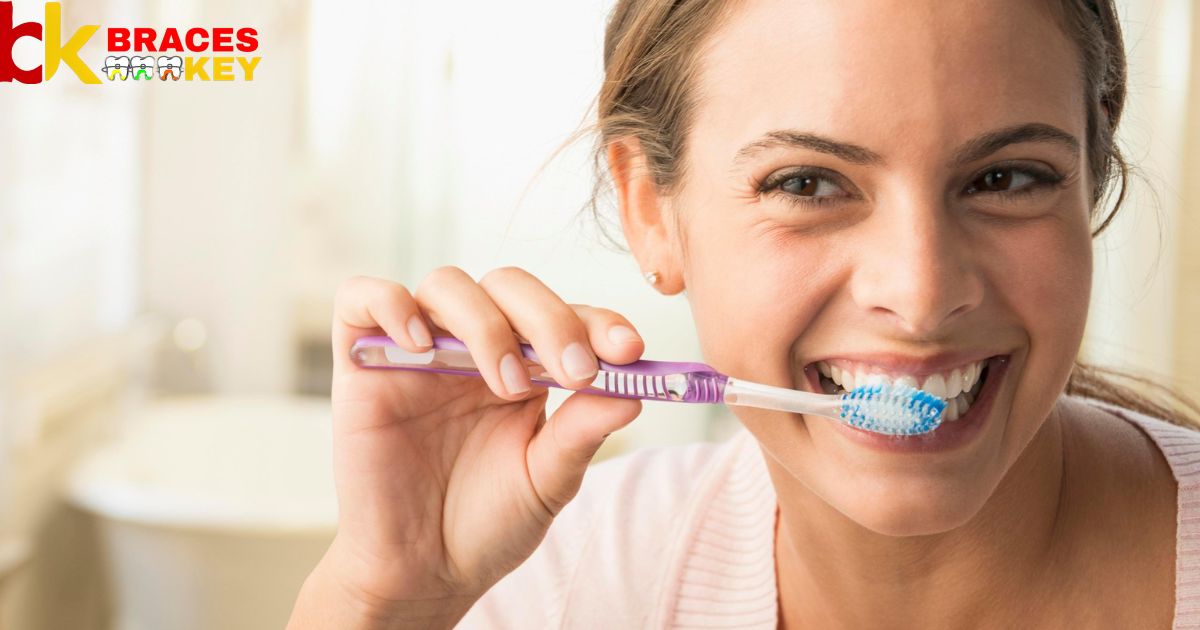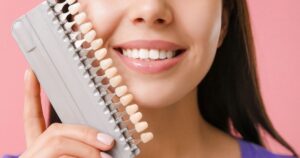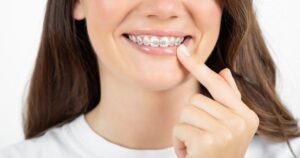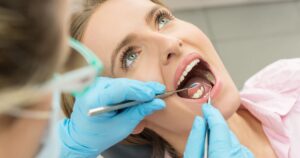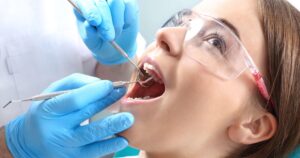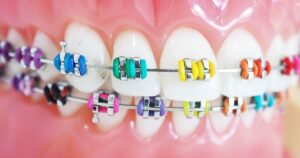Neglecting to brush your teeth with braces can lead to plaque buildup, causing cavities and gum issues. The brackets and wires create hiding spots for food particles and bacteria, posing a higher risk to oral health. Regular and thorough brushing is crucial to prevent these problems and maintain a healthy smile during orthodontic treatment.
Neglecting to brush your teeth with braces can lead to a host of issues, from cavities to gum inflammation. Those metal brackets create cozy hideaways for food particles, so proper hygiene is vital. Don’t let “Don’t brush your teeth with braces” neglect stand in the way of your perfect smile and maintain good oral care throughout your orthodontic journey.
Neglecting to brush your teeth with braces can lead to plaque buildup, tooth decay, and gum issues. Proper oral hygiene is crucial during orthodontic treatment to avoid these complications and ensure a healthy, beautiful smile in the end.
What Are the Effects of Not Brushing With Braces
Neglecting to brush with braces can lead to plaque buildup and tooth decay. Food particles trapped in the wires and brackets may result in bad breath. Regular brushing and flossing are essential to maintain oral health during orthodontic treatment.
What About Poor Brushing With Braces
Neglecting proper brushing with braces can lead to plaque buildup, tooth decay, and gum issues. It’s essential to maintain meticulous oral hygiene during orthodontic treatment to ensure a healthy and radiant smile. Regular brushing and flossing, along with dental check-ups, are crucial for avoiding potential problems.
What Does Proper Brushing With Braces Look Like
Proper brushing with braces is a meticulous process. Begin by gently brushing along the gumline, then angle the brush to clean around brackets and wires. Finish by cleaning the biting surfaces for a thorough, braces-friendly oral care routine.
Do White Spots Go Away After Braces
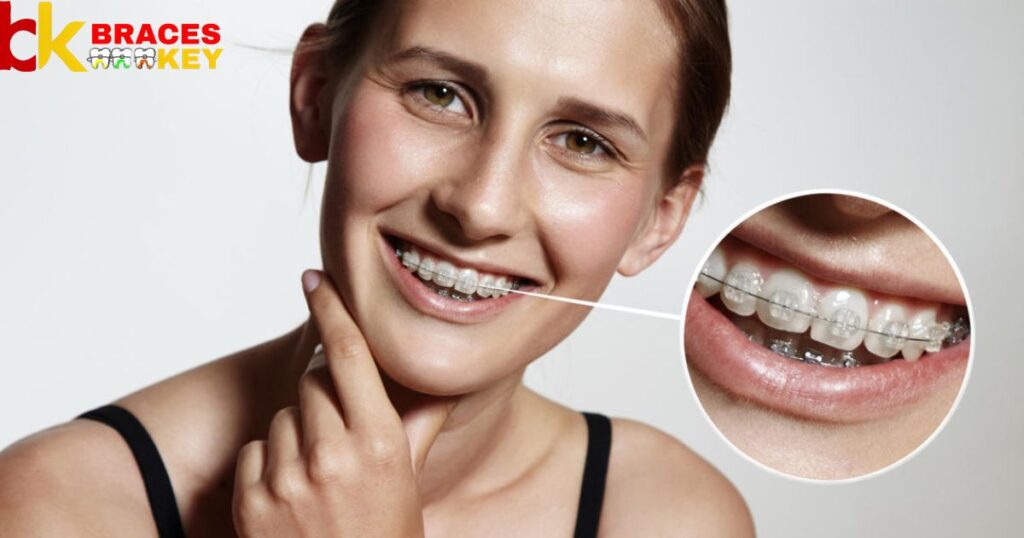
White spots that often appear after braces are removed can gradually fade with good oral care. Regular brushing, flossing, and dental check-ups can help improve the appearance of these spots. It’s essential to maintain a diligent oral hygiene routine for the best chance of seeing these white spots disappear over time.
Discoloring
Discoloring, often a result of staining or pigmentation changes, can affect various surfaces, from teeth to fabrics. It’s a common concern, but many remedies, like professional cleaning or whitening treatments, can help restore the original vibrancy. Understanding the causes and available solutions is key to addressing discoloration effectively.
Tooth Decay and Cavities
Tooth decay and cavities, often caused by plaque buildup and sugary diets, can lead to dental problems. They erode enamel and, if left untreated, can result in pain and more extensive dental procedures. Regular dental check-ups and good oral hygiene are vital in preventing and managing these common dental issues.
Inflamed Gums
Inflamed gums, often a sign of gum disease, can cause discomfort and bleeding while brushing or flossing. It’s essential to address this issue promptly through proper oral hygiene and regular dental check-ups to prevent more severe complications. Healthy gums are a vital part of overall oral well-being.
Bad Breath
Bad breath, also known as halitosis, can be caused by various factors, including poor oral hygiene, dental issues, or even dietary choices. It can lead to social discomfort and lowered self-esteem. Maintaining good oral care and staying hydrated can help combat bad breath and boost confidence.
Consequences of Poor Oral Hygiene with Braces
Neglecting oral hygiene with braces can lead to issues like cavities and gum disease. Proper care is essential to avoid these consequences and achieve a healthy, beautiful smile. Regular brushing, flossing, and dental check-ups are crucial during orthodontic treatment.
Plaque Accumulation
Plaque accumulation refers to the gradual buildup of sticky, bacteria-laden film on teeth. This common dental concern can lead to cavities and gum disease if not effectively managed through regular brushing and dental check-ups. Preventing plaque accumulation is essential for maintaining good oral health.
Tooth Decay
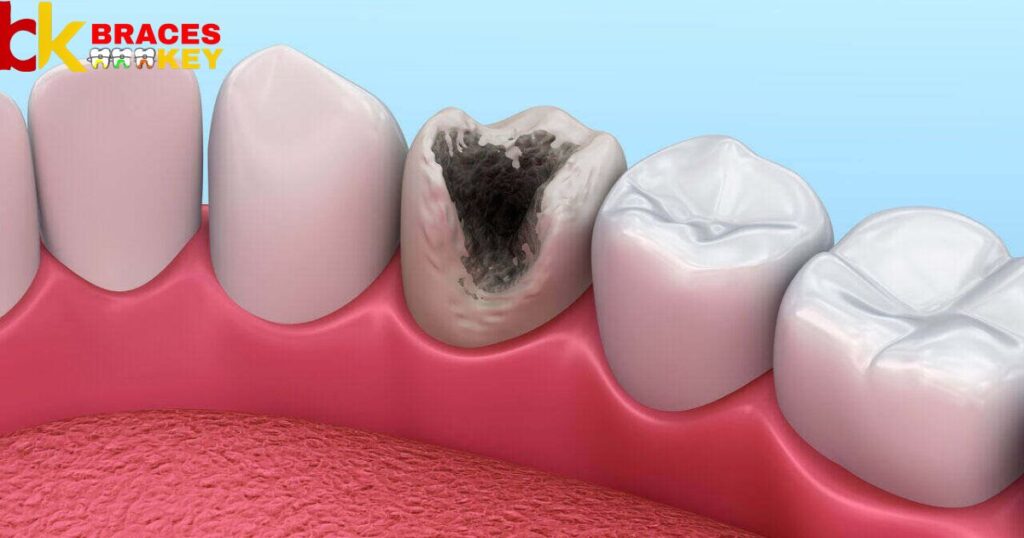
Tooth decay, often referred to as cavities, is a common dental issue caused by the erosion of tooth enamel due to acids produced by bacteria. It can lead to pain, sensitivity, and serious oral health problems if left untreated. Preventive measures like regular dental check-ups and proper oral hygiene play a vital role in combating tooth decay.
Gum Inflammation
Gum inflammation, also known as gingivitis, is a common oral health concern characterized by redness and swelling of the gums. It’s often caused by poor dental hygiene, but with regular brushing, flossing, and dental check-ups, it can be prevented and reversed, promoting healthier gums and a brighter smile.
White Spots on Teeth
White spots on teeth, also known as enamel hypoplasia, can be caused by various factors like poor dental hygiene, excessive fluoride, or early signs of decay. These blemishes can often be treated with improved oral care and dental treatments to restore a healthier, more vibrant smile.
Importance of Regular Brushing and Flossing
Regular brushing and flossing are the cornerstones of good oral hygiene. They help prevent cavities and gum disease, ensuring a healthy and confident smile. Incorporating these habits into your daily routine is essential for long-term dental well-being.
Daily Brushing Routine
Maintaining a daily brushing routine is essential for optimal oral health. It helps prevent dental issues, such as cavities and gum disease, while ensuring a fresh and confident smile. Just a few minutes each day can go a long way in keeping your teeth and gums in top condition.
Flossing with Braces
Flossing with braces can be a bit tricky, but it’s crucial for maintaining oral health. Using special tools like floss threaders or orthodontic floss can help you navigate around wires and brackets effectively, ensuring your smile stays healthy and bright throughout your orthodontic journey.
Mouthwash and Orthodontic Wax
Mouthwash and orthodontic wax are valuable tools for individuals with braces. Mouthwash helps maintain oral hygiene, while orthodontic wax provides comfort by preventing irritation from braces, ensuring a smoother orthodontic experience.
The Consequences of Neglecting Dental Care with Braces
Neglecting dental care with braces can lead to serious repercussions. Poor hygiene may result in tooth decay and gum disease, while ignoring orthodontic instructions can prolong the straightening process. Regular maintenance and compliance are crucial for a successful, healthy smile transformation.
Increased Risk of Tooth Decay
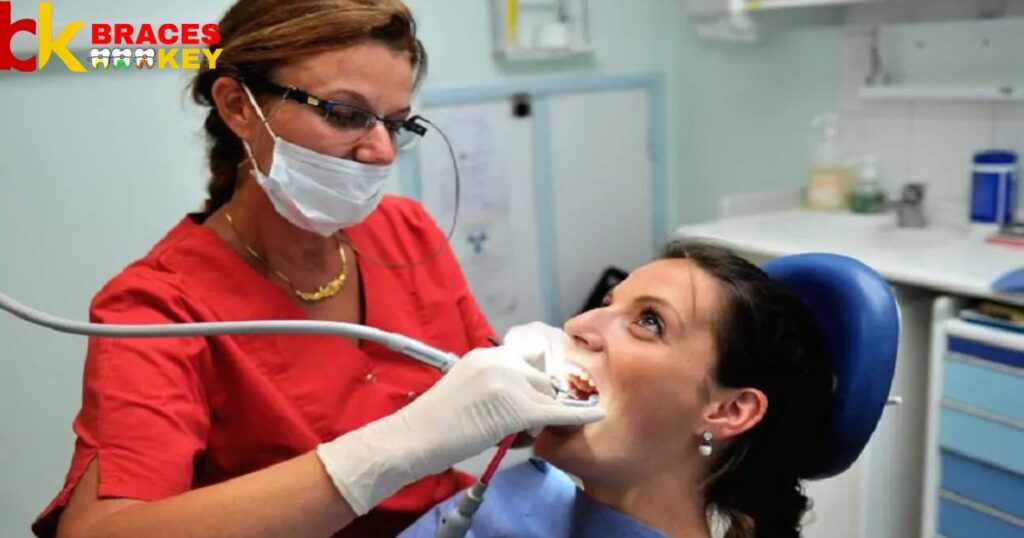
The increased risk of tooth decay is a common concern when oral hygiene is neglected. Poor dental care, sugary diets, and irregular check-ups contribute to this growing problem. Prevention through regular brushing, flossing, and dental visits is key to maintaining a healthy smile.
Gum Disease and Braces
Braces can pose unique challenges for individuals with gum disease. While orthodontic treatment aims to straighten teeth, it’s crucial to maintain proper oral hygiene to prevent gum issues from worsening. Regular dental check-ups and diligent care can help manage gum health during your orthodontic journey.
Unwanted Stains and Discoloration
Unwanted stains and discoloration can mar the beauty of your smile. Whether from coffee, tobacco, or other factors, these blemishes can impact your confidence. Fortunately, there are effective treatments available to help restore your teeth’s natural brilliance.
FAQ’s
What happens if you don’t brush your teeth with braces?
Neglecting to brush your teeth with braces can lead to the accumulation of food particles and plaque, increasing the risk of cavities and gum disease.
How often should I brush my teeth with braces?
It’s recommended to brush your teeth with braces after every meal and before bedtime to maintain oral hygiene effectively.
Can not brushing with braces cause teeth discoloration?
Yes, inadequate cleaning can result in teeth staining and discoloration due to the buildup of plaque and food residue.
Are there special tools for cleaning teeth with braces?
Yes, orthodontic tools like interdental brushes and floss threaders can help clean between brackets and wires, ensuring better oral health during orthodontic treatment.
Conclusion
Neglecting proper oral hygiene when wearing braces, as with Don’t Brush Your Teeth With Braces, can have serious consequences. Failing to brush your teeth regularly with braces can lead to the accumulation of food particles, plaque, and bacteria, ultimately increasing the risk of cavities and gum disease. Moreover, the presence of braces makes it even more crucial to maintain meticulous dental care.
Discoloration and staining of teeth are also potential outcomes of insufficient cleaning, which can impact not only oral health but also the appearance of one’s smile. To avoid these issues, it is essential to follow a strict oral hygiene routine, including brushing after every meal, using special orthodontic tools like interdental brushes and floss threaders, and attending regular dental check-ups. By doing so, individuals can ensure that their teeth remain healthy, their orthodontic treatment progresses as planned, and they achieve the beautiful, straight smile they desire.
